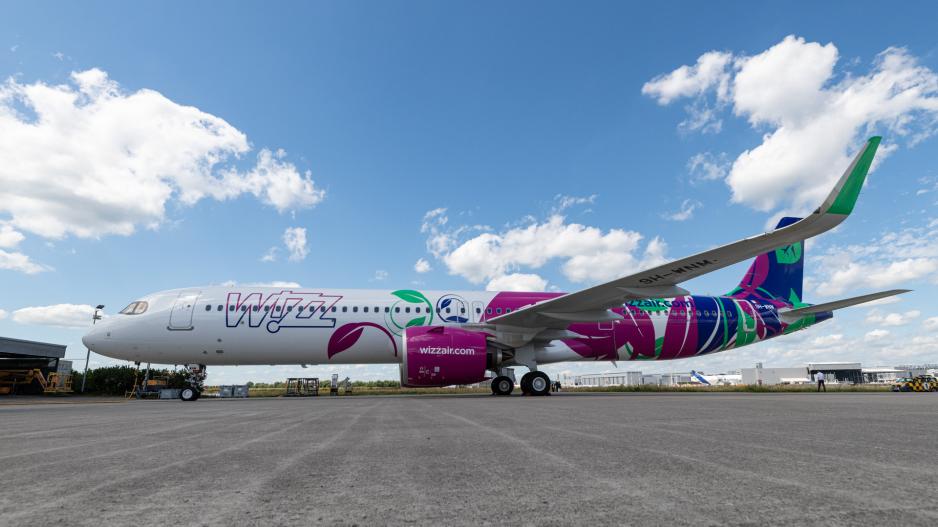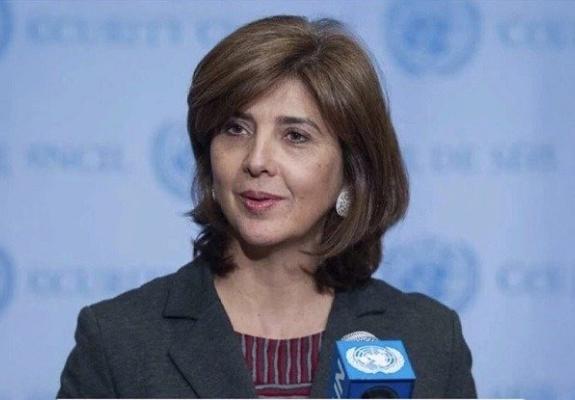Wizz Air Reveals Passengers’ Survey Results After Successful SAF TRIALS In Collaboration With Airbus
-
Survey revealed that 71% of respondents believe in the positive impact of Sustainable Aviation Fuel (SAF) on reducing the aviation industry's carbon footprint, though only 45% were familiar with it beforehand
-
Six aviation industry experts came together at a roundtable at Charleroi Airport to discuss the insights and potential actions stemming from the SAF trial
Wizz Air, Airbus, as well as Moeve and Charleroi Airport, today announced the successful completion of sustainable aviation fuel (SAF) operational trial. This marks a pivotal step towards decarbonizing aviation following the implementation of the Refuel EU legislation, which mandates a minimum share of SAF in flights departing from EU airports from 1 January 2025.
While many survey respondents consider changing their travel habits for environmental reasons, there is still a lack of passenger awareness on the aviation sector’s efforts to reduce carbon emissions, their intensity and other actions. These insights, along with the roles of various stakeholders, were discussed at a media roundtable in Charleroi, highlighting the importance of collaborative efforts in advancing low-carbon aviation.
During the trial, Wizz Air operated more than 50 flights using a blend of SAF and traditional jet fuel, according to the mass balancing model. In general, SAF can reduce CO2 lifecycle emissions by up to 90%, compared to traditional kerosene throughout its lifecycle. The initiative demonstrated the feasibility of incorporating SAF into regular operations and highlighted areas for future development, including infrastructure upgrades and cost optimization.
The survey engaged passengers to gauge their awareness and attitudes toward low-carbon aviation including sustainable aviation fuels. The results revealed the following:
-
Environmental Trade-offs: 58% of respondents considered adjusting travel habits for environmental reasons.
-
Affordability is Key: 65% of respondents would prefer lower emissions flights but 36% are not willing to pay extra.
-
Awareness Deficit of Legislative Efforts: 74% of respondents were unaware of the SAF mandate starting in January 2025, highlighting the need for improved communication.
-
Strong Demand for Government Support: 72% called for government investment to scale SAF production, emphasizing the importance of public-private collaboration to meet future demand.
Wizz Air and its partners have demonstrated their commitment to scaling up SAF through collaborative efforts, while also highlighting the need for improved public awareness and addressing cost concerns.
Yvonne Moynihan, Corporate & ESG Officer of Wizz Air, commented: “The successful completion of this trial reaffirms our commitment to flying towards sustainability. We are deeply grateful to our valued passengers who participated in this first-of-its-kind survey, providing invaluable insights into their awareness and attitudes toward SAF and sustainable travel. It’s encouraging to see that 71% recognized SAF’s positive impact and are willing to engage with sustainable practices. However, many respondents highlighted a need for greater clarity in SAF’s role in decarbonization, its cost implications, and the role of regulation.
Wizz Air is dedicated to prioritizing initiatives that transparently educate our passengers about SAF, its benefits and challenges, in the journey to decarbonizing aviation – a hard to abate sector. Wizz Air’s investment in Airbus aircraft has enabled it to be a leader in efficiency, being the airline with the lowest emissions per passenger per kilometer globally. The next phase in our sustainability strategy is to tackle absolute emissions through investment in SAF. Together with our partners, we will continue to advocate for policy support to address cost and production challenges to enable a green transition.”
The roundtable at Charleroi Airport highlighted the vital roles of all stakeholders in ramping up SAF adoption and utilization. Airbus sees itself as a catalyst in the development of a global SAF ecosystem.
Julien Manhes, Head of SAF and Carbon Dioxide Removal department in Airbus, added: "Today, SAF is available in small quantities, so we need to increase the demand and supply and reduce the price gap with traditional fuel. The insights gathered in the survey emphasize this from a passenger perspective and the importance of the aviation ecosystem—including airlines, airports, regulators, manufacturers, and fuel producers—working together to bring clarity and actively engage passengers in decarbonization efforts. This calls for a collective effort through regulatory compliance, more fuel-efficient aircraft and operations, and passenger awareness initiatives."
Álvaro Macarro, Moeve’s Director of Sustainable Aviation, said: “The results of this survey underscore the critical need for both industry and policy action to advance sustainable aviation fuel (SAF) adoption. While passengers are increasingly aware of environmental trade-offs, affordability and awareness remain significant barriers. At Moeve, we are committed to working alongside our partners like Wizz Air to scale up SAF production and improve public understanding. Government support is essential to bridge the gap between current capabilities and future demand, ensuring a sustainable and environmentally responsible aviation industry."
Charleroi Airport demonstrates leadership in developing infrastructure and partnerships that facilitate SAF uplift at scale.
Quentin Evrard, Sustainable Development Manager BSCA: “We are happy to have been chosen by Wizz Air for these tests. For Brussels South Charleroi Airport, it is important to continue operations while maintaining the environment as a priority. SAF integration into aviation fuel is a reality which every airline operation from a European airport will have to submit to. At Charleroi airport, we wish to encourage its use not only to meet the European mandate, but also to go further and exceed the minimum SAF percentage imposed.
This is why, in addition to working on a financial incentive for airlines, BSCA has joined forces with the SOWAER and the Walloon Government to facilitate the availability of SAF in Wallonia via a local production unit, an important step towards a sustainable future for the aeronautical sector.”






